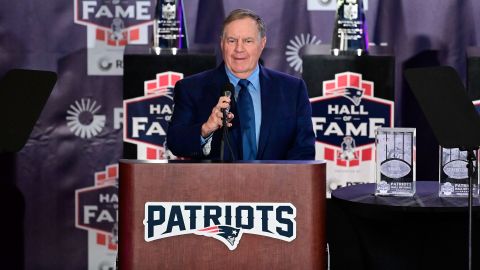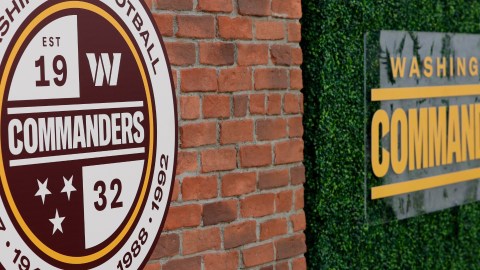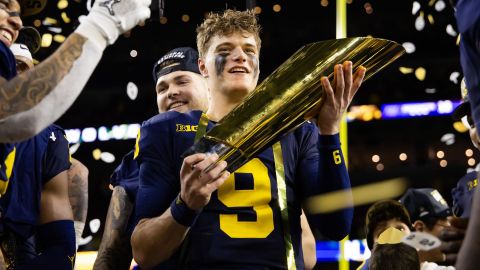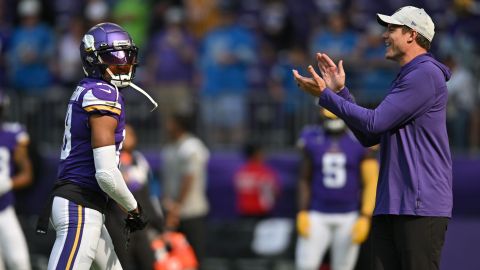Scan the many articles this week about the NFL’s declining TV ratings, and the theme is clear.
The photos accompanying these articles invariably feature players kneeling during the national anthem. The headlines and angles taken often expressly mention Colin Kaepernick and concerns over how protesting athletes are being received by fans from the heartland. The fact that the fall in viewership coincides with the anthem issue, supposedly, is too convenient to be ignored.
The position of many associated with the NFL, from its owners to its most connected media members, is that the recent and ongoing issue of player protests is hurting viewership.
And that reasoning is grossly flawed.
The number generally used to describe the decline through Week 6 is 7.5 percent, the overall decrease in viewership in 2017 through the same period last season. That’s worrisome to owners, who are accustomed to sitting back and seeing ratings and viewership balloon alongside their profits. So when the numbers are down and the dominant story of the season has been anthem protests, it’s easy to draw the line between the two.
It’s also lazy.
You can choose any measure you want, but all the data this year point to plummeting TV viewership across the board. Through July, teens were watching 15.9 percent less TV, older millennials were watching 11.2 percent less TV and Generation Xers were watching 4.8 percent less TV per week than a year ago. Even older adults in the 50- to 64-year-old age range were watching fewer hours of TV per week.
Viewership and viewing hours are different measures, to be fair. But they’re obviously closely related, and compared to double-digit decreases in TV viewing time, the NFL’s 7.5 percent viewership decline looks pretty good. In fact, one could argue it’s negligible at worst and positive at best, given the extent to which traditional TV as a whole is reeling.
(Also, “Monday Night Football” viewership is up 6 percent, which lands a pretty sizable blow to the “fans hate protests” view. If the protests truly were the biggest turn-off, wouldn’t “MNF” be hurt most of all? I don’t know about you, but the last thing I want to do after a long Monday at work is hear Steve Young’s anthem takes.)
Sure, a number of fans likely have turned away from the NFL due to their disgust with player activism. Sports for many fans are a release from political bickering, and for some of them, watching the artistry of Todd Gurley or the unintentional comedy of Eli Manning isn’t worth the price of hearing Kaepernick’s name mentioned once a broadcast. But placed against the larger media landscape, these fans’ influence appears to be so statistically insignificant a factor as to be virtually irrelevant.
It’s understandable how this narrative gets passed around. NFL owners aren’t about to admit they failed to understand the changing nature of media consumption, and it’s easier to tab a controversial scapegoat than to acknowledge fault — or even to realize there might be circumstances outside their vast control. NFL media has long suffered from carrying the league’s and teams’ water, so it’s no surprise the most influential voices are parroting the party line.
It’s also not very hard to see how very wrong that position is, however, and why using the simple excuse instead of being honest about some very real problems facing the future of the NFL and live sports will only be detrimental to the league in the long run.
Click for 2018 NFL Draft prospect rankings >>
Thumbnail photo via Chuck Cook/USA TODAY Sports Images



